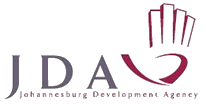JOBURG’S primary aim is to reduce the number of new HIV infections by 50 percent and lessen the impact of HIV/Aids on individuals, families and communities by expanding access to treatment, care and support to 80 percent of all those who are HIV-positive.
This was according to Noko Leopeng, the City’s director for HIV and Aids, who was speaking on the first day of a two day consultative workshop on the National Strategic Plan (NSP) on HIV /Aids, sexually transmitted infections (STIs) and tuberculosis (TB) for 2012 to 2016.
A draft plan is being drawn up for the next five years as the NSP for 2007 to 2011 is about to expire. Day one of the consultative workshop took place at the Parktonian Hotel in Braamfontein on 13 October.
Because the NSP is about to expire, the South African National Aids Council (Sanac) sought inputs from its various sectors, technical task teams, government departments, NGOs and other partners for the Draft NSP Document (2012-2016). It has four pillars: universal HIV testing and TB screening; sustaining health and wellness; increasing safety and reducing vulnerability; and changing societal norms and values.
It will guide health practitioners and volunteers over the next five years.
Prevention
In her presentation, Leopeng noted that the City provided education and awareness regarding the risks of HIV/Aids and prevention methods, and offered services to communities through social mobilisation programmes.
In 2010, it trained 219 people, 125 of whom were traditional healers, to work in the sector. More than R6-million had also been donated to 47 NGOs by the Mayoral Aids Fund. In addition, it ran specific campaigns to educate its residents, such as World Aids Day, STI and Condom Week, Care Week, Khariambe Youth Dialogues, and the distribution of pamphlets.
The City had 40 sites offering antiretroviral treatment; 5 891 children had been tested for 2010; and 225 volunteers were trained as counsellors through partnerships with Right To Care, Anova, Wits Health Institute, Futures Group: Sexual HIV Prevention Programme (SHIPP).
Presentations were also made by Wandile Zwane, the City’s director of human development; Liz Floyd, the director of the Gauteng Multisectoral Aids Unit; Brad Mears, the chief executive officer of the South African Business Coalition on HIV/Aids; Mluleki Zazini, of Positive Men of South Africa; Manape Kgopa, of the University of the Witwatersrand Reproductive Health Institute; Mpadi Makgalo, the director of strategic engagements for SHIPP; and Ruth Mathiba, of the Anova Health Institute.
Day two of the workshop, on 14 October, will consist of feedback on topics such as: Towards an HIV-free Johannesburg; Universal HIV testing and TB screening; Sustaining health and wellness; Increasing safety and reduce vulnerability; Changing societal norms and values; Monitoring and evaluation of HIV/AIDS programmes.
HIV/Aids programme
HIV/Aids is one of Joburg’s priorities, giving rise to its HIV/Aids Programme. “The prevalence [of HIV/Aids] in Johannesburg was 29,5 percent in 2001 among women attending public sector antenatal clinics (National HIV and Syphilis Sero-prevalence Survey 2001), which translates to an estimated one in three of the pregnant women attending public sector antenatal clinics,” reads the programme.
There is a close link between the HIV epidemic and TB, which is fuelled by HIV infection, it adds. TB is also the most frequent cause of death in people with HIV/Aids. In Joburg, 50 percent of 13 000 TB patients treated at City health facilities in 2000 were HIV-positive.
“The City of Johannesburg is acknowledging this epidemic that is decreasing life expectancy of its inhabitants, increasing numbers of orphans, increasingly decaying family and community structures with increasing demands on its scarce resources. It is therefore challenged to establish a concerted, integrated effort incorporating all sectors to curtail the spread of the disease and to provide comprehensive services to all people infected and affected by HIV/AIDS.”
It also has in place the Joburg Aids Agenda, and it established the Joburg AIDS Council in November 2001. The council gives support and assistance in the implementation of programmes in the fight against the pandemic.
In May 2006, Sanac mandated the national Health Department to lead a process of developing an NSP for 2007 to 2011.
That five-year plan followed the 2000-2005 NSP; the Operational Plan for Comprehensive HIV/AIDS Care, Management and Treatment; as well as other HIV/Aids strategic frameworks developed by the government and civil society.
The NSP 2007-2011 sought to provide guidance to all government departments and civil society by building on work done in the past. It was developed through an intensive and inclusive process of drafting, collection and collation of inputs from a wide range of stakeholders, including a national consultative conference.
Source: Joburg.org.za

